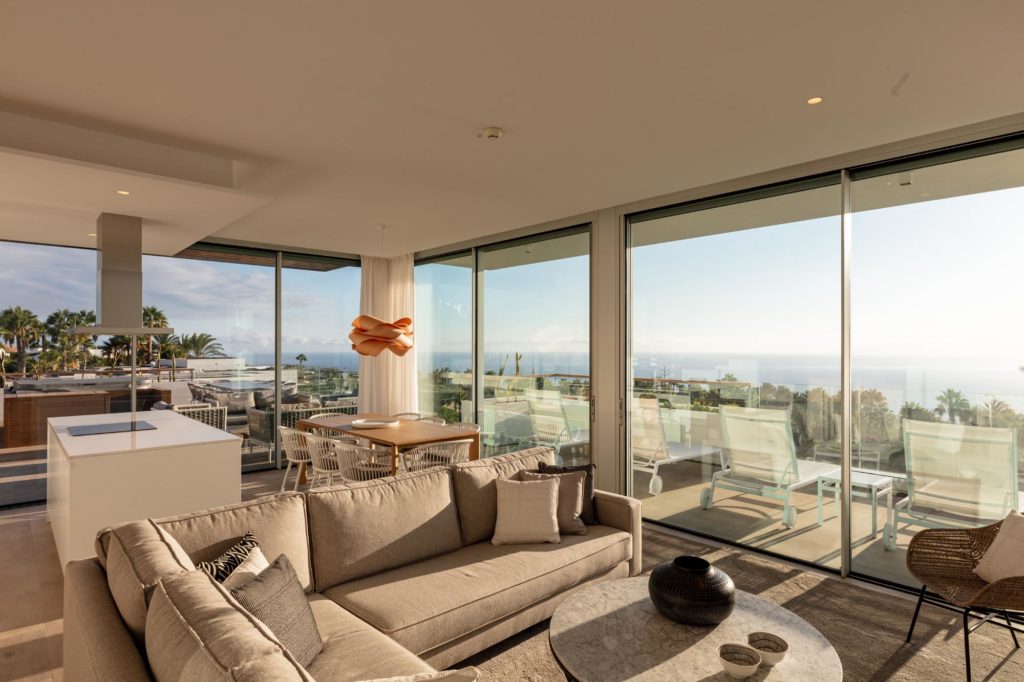
Occupying a space between traditional homes and hotels, serviced apartments in Spain are entering a period of accelerated growth. According to the latest report from Grand View Research, the segment reached an estimated value of USD 2.63 billion in 2024 and is projected to hit USD 8.74 billion by 2033, with an average annual growth rate of 14.9% between 2025 and 2033. The data confirms a clear shift in preferences: an increasing number of travellers, expatriates and professionals are opting for accommodation that combines the privacy of a home with the convenience of hotel-style services. With its strategic location, advanced infrastructure and enduring global appeal, Spain has emerged as one of Europe’s most dynamic markets for this evolving form of housing.
The growth of international tourism has been the principal catalyst for this expansion. Following the sector’s full recovery in 2024, Spain once again ranked among the world’s most visited countries, driving occupancy across serviced apartments as an alternative to traditional hotels. Yet growth is not confined to tourism alone. The rebound in corporate travel and the consolidation of hybrid work models have given rise to a new profile of guest: professionals seeking accommodation for several weeks or months who require comfort, flexibility and independence. For this profile of tenant, serviced apartments offer an optimal solution — generous living spaces, fully equipped kitchens, professional management and the option of extended stays. This trend has been further reinforced by the arrival of digital nomads and international remote workers, encouraged by Spain’s new visa programmes designed to attract global talent.
The report also underlines some structural challenges. Regulation surrounding short-term rentals and the availability of local licences may temper growth in Spain’s largest cities. For operators, the key will be to maintain professional standards and scalability while adapting to evolving local frameworks. In 2024, short-stay units (under 30 nights) accounted for more than 70% of total sector revenue, reflecting the strength of both leisure and urban tourism. However, the greatest growth potential lies in longer-term stays, projected to expand by 15.7% annually through 2033. This shift illustrates a broader transformation in Spain’s residential landscape: the country is attracting a new type of international resident — relocated professionals, executives on temporary assignments and entrepreneurs in search of a stable, serviced base. The line between “business travel” and “temporary residence” is increasingly blurred, and serviced apartments now occupy that intersection with precision.
Digitalisation is Redefining the Market
The report also points to a significant evolution in booking behaviour. In 2024, direct reservations through operator websites accounted for 49.7% of the total, slightly surpassing those made through intermediaries. This trend suggests that brands are investing in their own digital platforms and loyalty schemes to strengthen direct client relationships.
Corporate bookings, meanwhile, are growing at the fastest pace, with a compound annual growth rate (CAGR) of 16.6% forecast between 2025 and 2033. Companies increasingly value the consistency, professional management and cost control that serviced apartments provide, ensuring a reliable and comfortable experience for mobile employees and executives.
The New Luxury: Flexibility and Personalisation
One of the most striking conclusions of the study is that today’s guest seeks a “home away from home”, a domestic environment supported by professional management and tailored services. This marks a fundamental shift in the definition of luxury. Exclusivity now lies less in display and more in flexibility, privacy and customisation.
While the report considers the market as a whole, its implications are particularly relevant for the premium real estate segment, where developers are already integrating this model into resort communities such as Abama Resort in Tenerife, Canary Islands. High-net-worth buyers and investors are showing increasing interest in hybrid products that combine private ownership with hotel-grade services, including branded residences and managed villas. In this context, the growth of the serviced apartment market strengthens the business case for developments that merge personal use, professional management and investment returns.
Serviced apartments are evolving rapidly, integrating automation technologies, 24-hour digital concierge systems and a growing range of personalised services ranging from curated add-on services to the reconfiguration of interiors for work or entertainment. The boundary between high-end hospitality and residential living is narrowing, opening fertile ground for innovation. For investors, the sector presents a dual opportunity. First, the conversion of existing assets, such as obsolete hotels or residential buildings, into serviced apartments managed by specialised operators. Second, the development of purpose-built schemes designed for hybrid residential and corporate use, combining private ownership with centralised management and rental structures.
Spain is consolidating its position as one of Europe’s most promising markets for this format, supported by its climate, infrastructure, tourism draw and lifestyle. The challenge will be to balance the flexibility demanded by international residents with the urban sustainability priorities of local authorities. Ultimately, future growth will depend largely on land availability and the regulatory environment. Stricter short-term rental controls in major cities could redirect part of the investment towards secondary cities and metropolitan areas, where costs remain competitive and regulation more favourable.
The conclusion is clear: serviced apartments in Spain are evolving from a niche product into a structural pillar of the national real estate market. With a forecast annual growth of 14.9% through 2033, the sector reflects a broader cultural transformation — towards a way of living that is more fluid, connected and experience-driven.



